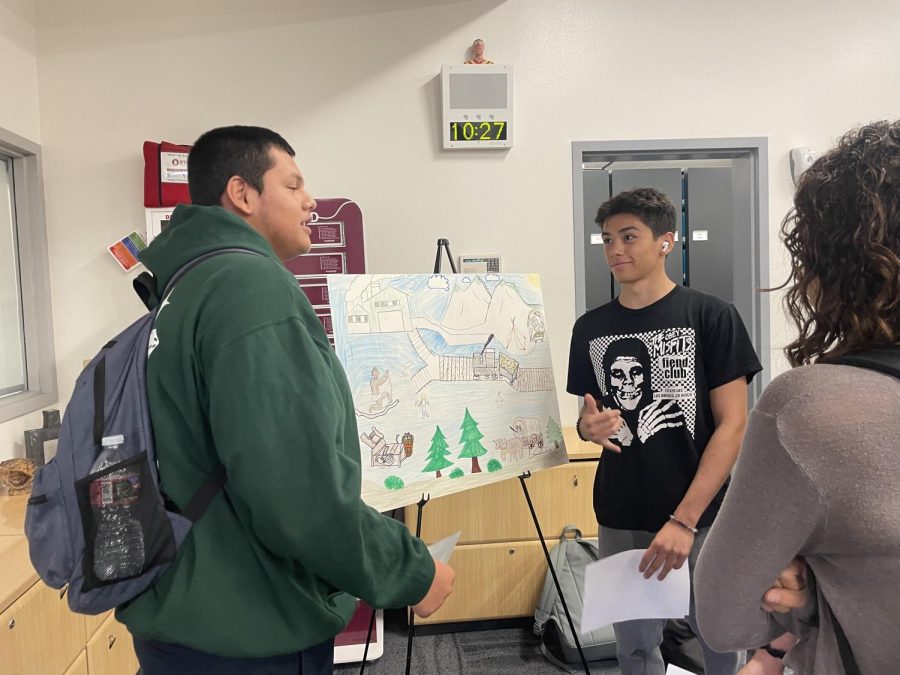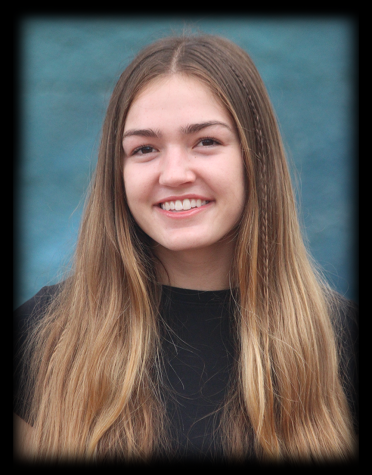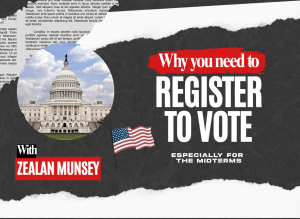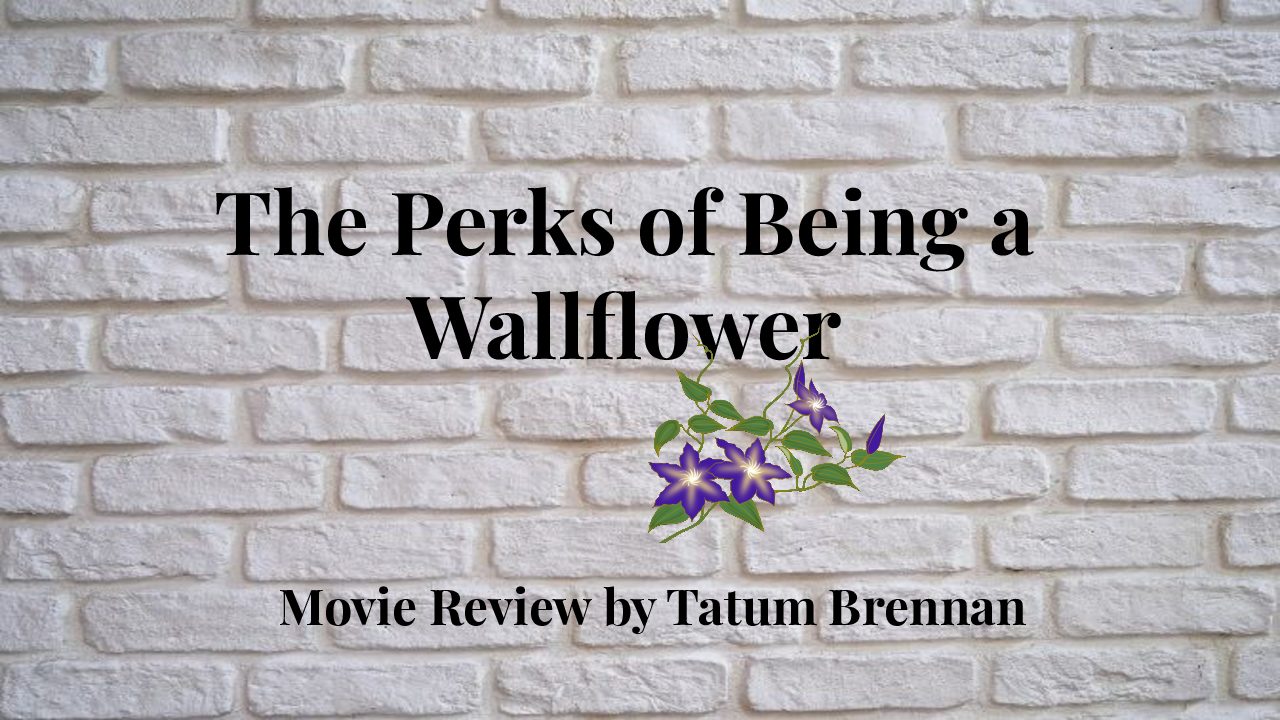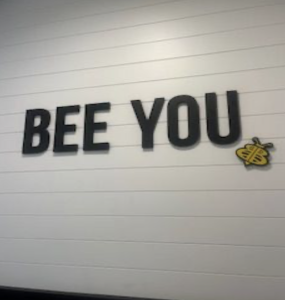U.S. History students host a gallery walk to broaden students’ perspectives
October 13, 2022
Ms. Shelby Anderson’s eleventh-grade U.S. History students hosted a walk-through gallery of murals last month during first-period tutorial in order to educate their peers about how Manifest Destiny provided benefits as well as drawbacks for marginalized groups of people.
The students illustrated posters to serve as murals while informing peers about the topics they chose. The posters depict railroads, the cotton gin and wagons traveling through the plains. The students were allowed to choose their own group to present on.
“My goal was to give students the opportunity of choice in whatever topic they pursue and to practice their presentation skills in a low-stakes environment,” said Anderson. “It was also to refresh them on things that they maybe forgot from eighth grade.”
Some reasons why many students chose a specific topic was because it impacted them personally, or it sparked interest since it was an unfamiliar subject.
“I selected Native Americans as my topic because I didn’t know anything about them,” said junior Addie Hudzinski. “It was interesting to see how they adapted to a changing American culture.”
American culture was constantly changing during this time, partly thanks to the Abolitionist Movement.
“I chose the Abolitionist Movement to gain more knowledge on this topic. I learned that the cotton gin was a big part of the American economy, and it caused a lot of misfortune for African Americans,” said junior Charlie Tyus.
The Abolitionist Movement took place from 1783-1888, led most notably by Sojourner Truth and Frederick Douglass.
“I chose the Irish immigrants because they were a different case of discrimination. They were not mistreated because of their skin color like African Americans—it was because they were perceived as being unsanitary,” said junior Dario Bitz.
After completing the gallery walk, Anderson hopes viewers left with a better understanding of Manifest Destiny.
“There were significant challenges and disadvantages that people groups faced at this time. I would hope that visitors left with a better understanding and more accurate view of the time period and that this ‘destiny’ was not available to everyone,” said Anderson.

